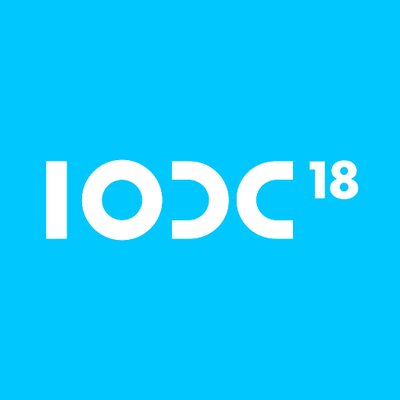Data for good!
Reflections from the International Open Data Conference
Blog by Sally Akinyi, October 18, 2018
The future is open!
This was the main message at the 4th International Open Data Conference. On 27- 28 September 2018, 1500 participants from the data community came together in Buenos Aires. Participants from governments, civil society, academia and private sector shared experiences and lessons with the aim of collaborating globally in the field of open data.
The data community has significantly grown in the last couple of years. Bound together by a common goal of using data to solve structural problems in society these enthusiasts identify with the belief that open data in itself is not just about sharing data but using the mechanism to influence decision making in good governance.
During the conference, various front-runner governments that have become known as the flag bearers of transparency and accountability shared their experiences in the use of approaches such as open contracting to improve service delivery.
Countries such as Paraguay, Colombia and Ukraine were lauded for their efforts in using the open contracting data standard to transform service delivery in the public sector. Colombia is now a leading example of how to run an effective school-feeding program. To curb inefficiency and corruption in the provision of school meals to over 800,000 students, the country’s procurement oversight authority radically reformed the school meals system. In partnership with the Ministry of Education, use of open data was introduced which enable reforms of the system. The reforms resulted in better regulation of prices, transparency and delivery of quality meals to students.
But while these stories of change are becoming more frequent, much still needs to be done to make governments as well as private sector more transparent and accountable. At the Open Cities summit, experts noted that systemic changes are needed to lead to a culture of openness in the push for transparency in the use of public funds.
A critical example was given of the New Mexican airport where the government is publishing incomplete data about contractors and the actual beneficial owners that are benefiting from the tenders.
Cities and municipalities were also challenged to be part of change by embracing the current data revolution wave that is not only driving smart cities in order to provide information to citizens and improve public service delivery, but disrupting decision making in the use of public funds. These can be done in various ways: adopting open budgets, opening up procurement systems, working with infomediaries to provide actionable data to citizens so as to upscale sustainable solutions that can improve the quality of life in cities.
The legal context was also seen as integral component of propelling transparency. Access to information laws plays a critical role in guaranteeing the right to access information. Most scandals in the use of public funds have been propelled by lack of disclosure. It was further noted that provision of data using such laws promotes inclusivity in decision-making and encourages public participation on matters concerning the quality of life of citizens.
In its continued traction to build a coalition of the willing for open contracting, Hivos East Africa’s session at the Open Data in Sub Sahara Africa Workshop, inspired data enthusiasts in Africa to forge a multi-stakeholder working group made up of governments, civil society and academia to spearhead the adoption of contracting data and beneficial ownership in different countries.
Hivos East Africa together with partners and infomediaries such as Budeshi (in Nigeria), Article 19 and the Africa Freedom of Information Centre in Uganda, have been leading the open contracting movement in Africa. Together we are driving procurement reforms in government to bring lasting change in the delivery of quality goods and services for citizens. In fact there exists progressive procurement institutions and devolved governments such as the Makueni County in Kenya that have adopted the open contracting approach to promote transparency in public contracting.
As the event ended on a ‘high’ it was clear that the age of the data disruption is spreading its tentacles to Africa. The data community in the continent welcomed the good news of the next International Open Data Conference that will be hosted in Nairobi, Kenya. This only proves that the momentum to involve the global south in development for good using data is alive!





